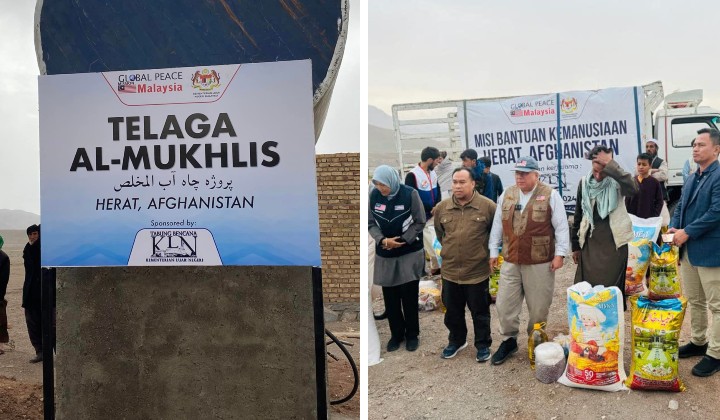Plastic Waste: A Problem That Needs To Be Looked Into Immediately
Plastic waste affects the country’s economy, wildlife, and people’s well-being.

Subscribe to our FREE Newsletter, or Telegram and WhatsApp channels for the latest stories and updates.
Plastic waste has been a big environmental issue in recent times, especially those that end up in the ocean, causing problems for the underwater ecosystem.
Earlier this year, a study conducted by Visual Capitalist ranked Malaysia as the third biggest contributor to plastic pollution in the ocean, with 73,098 metric tonnes, after the Philippines and India.

Plastic waste is a significant ecological and health issue, with millions of plastic bottles and reusable bags being purchased daily worldwide.
With global population growth and individual use increasing, plastic waste is the third most prevalent waste material globally.
Malaysia, the top buyer of plastic garbage since 2017, faces challenges in its waste disposal system due to global trends in production and disposable plastic use.
In 2021, Malaysia received almost 500,000 metric tonnes of plastic garbage and returned approximately 11,000 metric tonnes, making it one of the world’s biggest importers of plastic waste.
Malaysia is also one of the world leaders in plastics manufacturing. However, the country has been dealing with plastic contamination issues for a long time.
While disposable plastic bag consumption has decreased in recent years, many small grocery stores and shops continue to distribute them without considering the environmental impact.
The image of blocked sewers and dumps filled with pollutants serves as a reminder that everyone, including authorities, must act to reduce our reliance on plastic, said Dr Rulia Akhtar (Research Fellow at the Ungku Aziz Centre for Development Studies (UAC), Office of Deputy Vice Chancellor (Research & Innovation), Universiti Malaya, Malaysia) in an opinion article published by Bernama.
Why must we act now?
According to an article by the International Union for the Conservation of Nature (IUCN), plastic debris significantly affect marine life, including ingestion, suffocation, and the entanglement of marine species.
These species, including seabirds, whales, fish, and turtles, mistake plastic waste for prey, leading to starvation, lacerations, infections, reduced swimming ability, and internal injuries.
Floating plastics also transport invasive marine species, threatening marine biodiversity and the food web.
Microplastics, found in tap water, beer, salt, and ocean samples, can cause developmental, reproductive, neurological, and immune disorders in humans and wildlife.
Microplastics have also been found in human placentas, but more research is needed to determine if this is a widespread issue.
Toxic contaminants accumulate on plastic surfaces due to prolonged exposure to seawater, affecting marine organisms’ digestive systems and the food web.
The transfer of contaminants between marine species and humans through seafood consumption is a health hazard.
Plastic waste also damages tourist destinations’ aesthetic value, leading to decreased income and economic costs related to site cleaning and maintenance.
The buildup of plastic litter on beaches negatively impacts a country’s economy, wildlife, and people’s wellbeing.
What can be done?
In an article by The Star, Ecotourism and Conservation Society Malaysia president Andrew Sebastian said increasing public environmental consciousness would be the key to encouraging industry players to develop more sustainable and eco-friendly alternatives.
He recommended the government and industry players explore recycled cardboard and papier-mache, among others.
He also said that making the alternatives cheaper through financial incentives or charging higher taxes on plastic packaging could also help the cause.
Meanwhile, Sahabat Alam Malaysia (SAM) senior research officer Mageswari Sangaralingam calls for a holistic approach that encourages the use of reusable bags through a deposit and return system.
This would foster a culture of being both environmentally and socially responsible by providing consumers with a financial incentive to return their reusable packaging. She also
recommends using beeswax wraps for compostable bags and metal or glass containers for food containers.
Finally, Malaysian Bar Council environmental and climate change committee deputy co-chair Saha Deva Arunasalam calls on industry players to use existing alternatives to plastic bubble wrap and packaging, such as corrugated cardboard and shredded paper.
These alternatives are relatively cheap and easy to find for both big industry players and small businesses.
All these alternatives sound good; however, common people must also take incentive in working together with the government to make this process a success.
However, it seems that many people are still unaware of the effects of using plastic bags.
According to a report by NST from last September, many people are deciding where to shop for their daily needs according to the availability of plastic bags.
Many supermarkets and fast-food chains have begun to practice the “no-plastic policy.” One of them is the very well-known 99 Speedmart.
At 99 Speedmart, they do not provide plastic bags for customers, even if they are willing to pay for them.
In conclusion, every single citizen needs to take this problem seriously as it affects us in the end.
Share your thoughts with us via TRP’s Facebook, Twitter, Instagram, or Threads.





